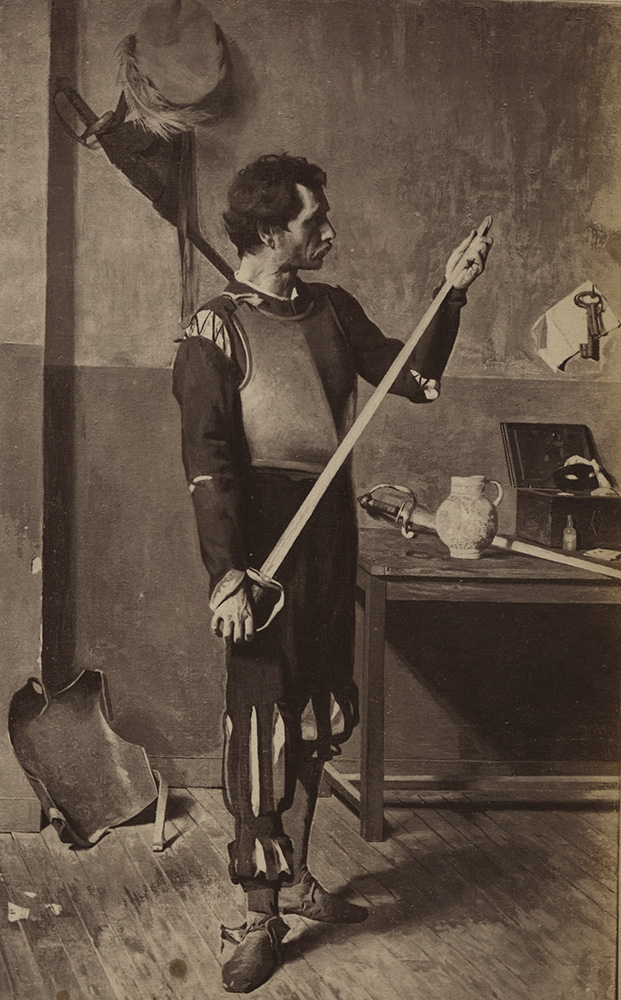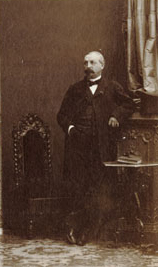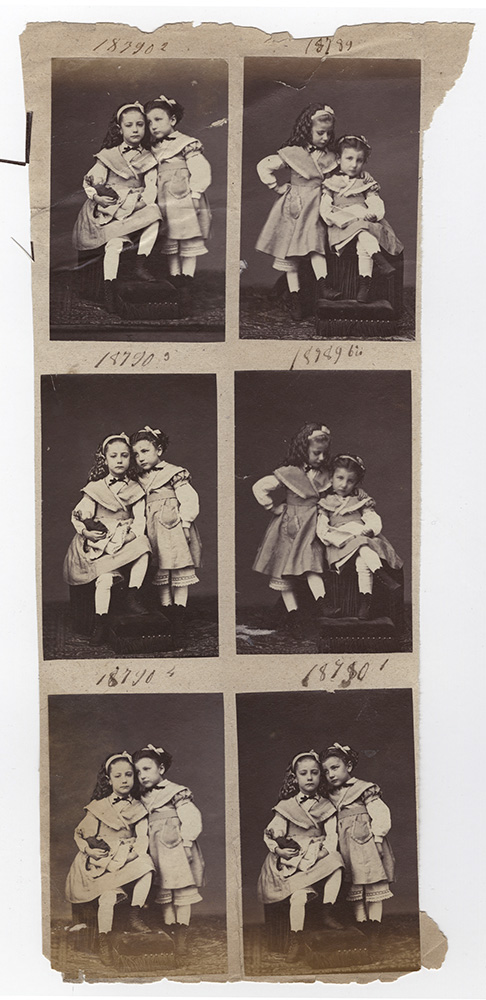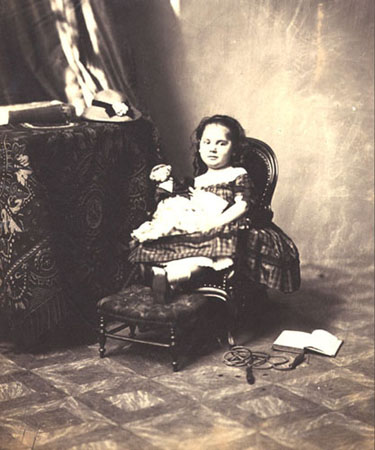
André-Adolphe-Eugène Disdéri (March 28, 1819, Paris–October 4, 1889) was a French photographer who started his photographic career as a daguerreotypist but gained greater fame for patenting his version of the carte-de-visite, or CDV, a small photographic image which was mounted on a card. Disdéri, a brilliant showman, made this system of mass-production portraiture world famous.
The wealthy amateurs Count Olympe Aguado and Edouard Delessert produced small photographs that they used as calling cards. An 1854 article stated: "An original idea gave M. Edouard Delessert and Count Aguado the opportunity to make some delicious small portraits. Until now, calling cards have carried the name, address, and sometimes titles of the people they represented. Why not replace the name with a portrait?" [Quoted in McCauley, "A.A. E. Disderi and the Carte de Visite Portrait Photograph."]
Disderi realized the commercial possibilities of this format. On November 27, 1854 Disdéri patented the system of printing ten photographs on a single sheet (although there is no evidence that a system printing more than eight actually materialized). This was the first patent ever for a carte de visite. Disdéri's's cartes de visite were 6×9 cm, about the size of conventional (non-photographic) visiting cards of the time, and were made by a camera with four lenses and a sliding plate holder; a design inspired by stereoscopic cameras.
The carte de visite became the mainstay of Disdéri's studio output. He is known to have made portraits of Aguado [McCauley p. 44], who himself produced CDVs, sometimes in association with Gustave Le Gray.
The novelty quickly spread throughout the world. According to a German visitor, Disdéri's studio became "really the Temple of Photography--a place unique in its luxury and elegance. Daily he sells three to four thousand francs worth of portraits".
The fact that these photos could be reproduced inexpensively and in great quantity brought about the decline of the daguerreotype and ushered in a carte de visite craze as they became enormously popular throughout Europe and the United States. So great was the publicity that all of Paris wanted portraits.
Disdéri also invented the twin-lens reflex camera.
At the pinnacle of his career, Disdéri was extremely wealthy and renowned; but like another famous photographer, Mathew Brady, he is reported to have died in near poverty.
By the end of his life, Disdéri had become penniless. He died alone and forgotten on October 4, 1889 in the Hôpital Ste. Anne in Paris, 'an institution for indigents, alcoholics, and the mentally ill'. He was a victim of his own invention. The system which he invented and popularized was so easy to imitate that photographers all over the world took advantage of it.
Exhibited and Sold By
Contemporary Works / Vintage Works, Ltd.
258 Inverness Circle
Chalfont, Pennsylvania 18914 USA
Contact Alex Novak and Marthe Smith
Email info@vintageworks.net
Phone +1-215-518-6962
Call for an Appointment









Share This